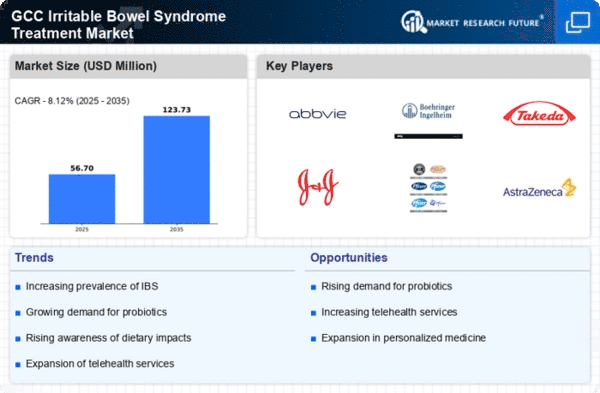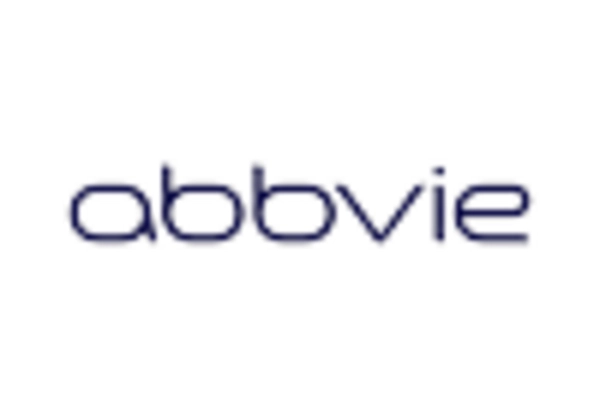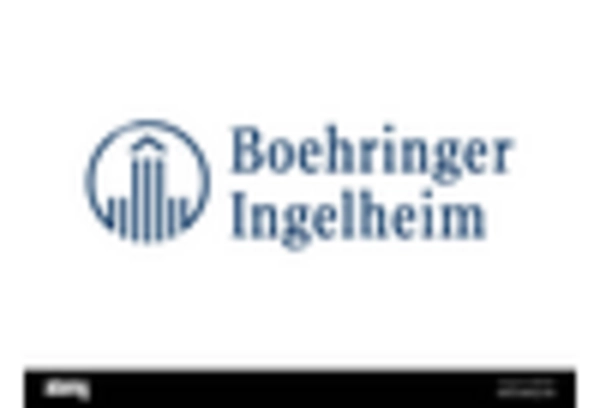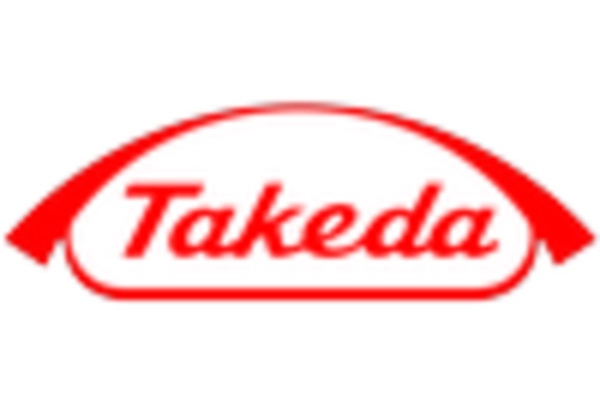Rising Prevalence of IBS
The increasing prevalence of irritable bowel syndrome (IBS) in the GCC region is a significant driver for the irritable bowel-syndrome-treatment market. Recent studies indicate that approximately 10-15% of the population in GCC countries experience IBS symptoms, leading to a growing demand for effective treatment options. This rise in prevalence is attributed to various factors, including dietary habits, stress levels, and lifestyle changes. As more individuals seek medical attention for their symptoms, healthcare providers are compelled to enhance their treatment offerings. Consequently, pharmaceutical companies are investing in research and development to create innovative therapies tailored to the unique needs of IBS patients. This trend is likely to bolster the market, as increased awareness and diagnosis of IBS contribute to a larger patient base requiring treatment.
Increased Healthcare Expenditure
Increased healthcare expenditure in the GCC region is a pivotal driver for the irritable bowel-syndrome-treatment market. Governments and private sectors are investing more in healthcare infrastructure, leading to improved access to medical services and treatments for IBS. This rise in expenditure is reflected in the expansion of healthcare facilities, availability of advanced diagnostic tools, and the introduction of new treatment modalities. As healthcare budgets grow, there is a corresponding increase in the allocation for gastrointestinal disorders, including IBS. This trend is likely to enhance the availability of effective treatments and encourage pharmaceutical companies to introduce innovative products tailored to the needs of the GCC population. Consequently, the market is expected to experience robust growth as healthcare investments translate into better patient care and treatment options.
Shift Towards Preventive Healthcare
The shift towards preventive healthcare in the GCC region is emerging as a significant driver for the irritable bowel-syndrome-treatment market. As healthcare systems increasingly focus on prevention rather than just treatment, there is a growing emphasis on lifestyle modifications and dietary interventions to manage IBS symptoms. This proactive approach encourages patients to seek early intervention and adopt healthier habits, which can mitigate the severity of their condition. Consequently, healthcare providers are integrating preventive strategies into their treatment plans, which may include nutritional counseling and stress management techniques. This shift not only enhances patient engagement but also fosters a more comprehensive treatment approach for IBS. As preventive healthcare gains traction, the irritable bowel-syndrome-treatment market is likely to benefit from an increase in demand for both traditional and alternative treatment options.
Advancements in Pharmaceutical Research
Advancements in pharmaceutical research are propelling the irritable bowel-syndrome-treatment market forward. The development of new medications, including novel classes of drugs targeting specific IBS symptoms, has expanded treatment options for patients. For instance, medications that focus on gut-brain interactions and microbiome modulation are gaining traction. The GCC region has seen a surge in clinical trials aimed at evaluating the efficacy of these new treatments, with several products expected to enter the market in the coming years. This influx of innovative therapies is anticipated to enhance patient outcomes and satisfaction, thereby driving market growth. Furthermore, the collaboration between pharmaceutical companies and research institutions in the GCC is fostering an environment conducive to rapid advancements in IBS treatment, which may lead to a more competitive market landscape.
Growing Awareness and Education Initiatives
Growing awareness and education initiatives regarding IBS are significantly influencing the irritable bowel-syndrome-treatment market. Healthcare organizations and patient advocacy groups in the GCC are actively promoting awareness campaigns to educate the public about IBS symptoms, triggers, and available treatments. This increased awareness is crucial, as many individuals remain undiagnosed or misdiagnosed due to a lack of knowledge about the condition. As more people become informed about IBS, they are more likely to seek medical advice and treatment, thereby expanding the patient population. Additionally, healthcare providers are enhancing their training programs to better equip them in diagnosing and managing IBS, which is expected to further stimulate market growth. The emphasis on education is likely to lead to improved patient outcomes and a more robust treatment landscape.
















